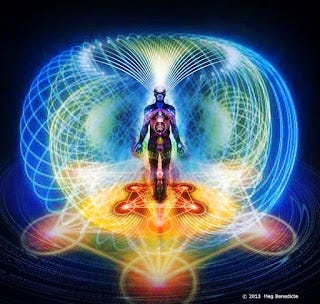Foxholes and Fatalists
"I’ve yet to meet a chareidi Jew who denies the laws of physics exist." That was one of several such comments disputing the post that I wrote last week, Denying the Reality of Physics. Others pointed out that charedim are very particular about hishtadlus in many areas.
Allow me to elaborate.

Consider two positions at complete odds with each other. One is a purely materialist position, in which nothing exerts influence other than the cold, hard laws of physics - a position usually believed to be taken by atheists and hardcore Maimonidean rationalists. The other is an extreme mystical position, a sort of theological fatalism, in which either the laws of physics have no actual reality whatsoever, or they have very little application, since miracles are performed by God and righteous people all the time.
I doubt that there are many people - if anyone at all - at either of these positions.
We are human beings, and we are thus complex creatures. There's an old saying that "there are no atheists in a foxhole." On a personal level, I can attest that I have firm beliefs about providence - divine intervention in my own life - that are completely at odds with the rationalist Rishonim.
Likewise, however much some people claim to believe that hishtadlus has no real value and should be minimized as much as possible and everything is in God's hands, they will put an enormous effort into hishtadlus - and rate it as having very real value - when it's something of pressing urgency to them. Charedi ideology purports to maintain that one must not send yeshivah students to the army, because it's the spiritual benefit of their study that provides real security, and one must also not take away time from Torah study to prepare for a job, as everything is in the Hands of Hashem - but when there are elections, and charedim want to rally support for votes in order to get more money for their sector, they empty the yeshivos! It's true that there are no atheists in a foxhole, but there are also no theological fatalists in an Israeli election!
And so the reality is that there is nobody (or hardly anybody) who occupies either extreme. We all fall somewhere in the middle. Nevertheless, some of us are closer to one side, some to the other. That may to some degree be due to our innate inclinations, but to a large degree, it is also affected by our education and environment.
If you have a worldview, stressed in yeshivos and sefarim and the press (and see this example at Aish.com), that the laws of physics are a "smokescreen" which have no genuine reality (as per Rav Dessler), that they are regularly overturned by God and righteous people (as per various chassidic and sefardic groups), that hishtadlus is just a "fine" to be paid and should either be minimized or not done excessively, that one's parnasah has absolutely no connection to one's education or even to working, then the result is inevitable: unless something is of very obvious urgency (like elections), people will not take the laws of cause-and-effect seriously.
And then there's something else: If you have a worldview in which the national/ secular authorities are the "other," and one is not a true part of the national entity, and one does not join in the national days of celebration and sadness or national service and there is room to discuss whether one can steal from the State, then people are less likely to take laws and procedures seriously in general. There might be very good historical reasons for the development of this autonomous identity, and it might have some very beneficial effects in terms of creating a sense of community and neighborly kindness and avoiding assimilation, but it nevertheless has these negative effects too.

The combination of these two factors is why, generally speaking, charedi Jews, and especially chassidic Jews, have relatively less concern for secular laws that relate to scientific considerations. One obvious example is with regard to safety on the roads, whether with regard to seat belts, car occupancy, or traffic regulations. Another obvious example is with regard to obeying regulations on airplanes. And yet another is with regard to Covid restrictions.
Putting all this together, when you have an enormous tragedy resulting from years of insufficient concern for engineering-related regulations, the underlying factors are obvious.
If you'd like to subscribe to this blog via email, use the form on the right of the page, or send me an email and I will add you.


